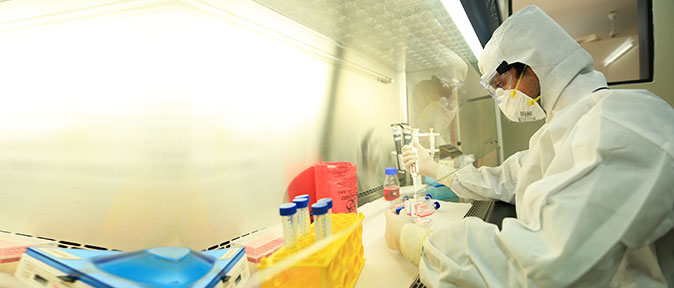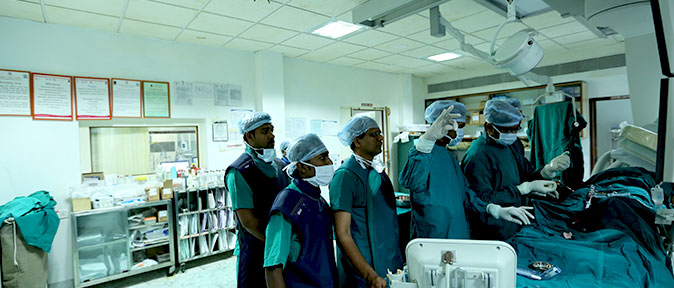Overview
1. Course Description:
The Glaucoma Fellowship is a one year program with the overarching goal of the program is to provide the student with the skills to enable him/her to practice as a glaucoma specialist.
By the end of the fellowship, the fellow,
- Would have the knowledge and skills of performing clinical tests of glaucoma.
- Would be able to perform investigations relevant to glaucoma and interpret them.
- Would be able to formulate an appropriate treatment plan for the glaucoma patient.
- Would be able to develop skills for laser procedures in glaucoma like suture lysis, peripheral iridotomy, iridoplasty, cyclophotocoagulation and glaucoma surgeries like trabeculectomy, combined cataract surgery and trabeculectomy, minimally invasive glaucoma surgery, glaucoma shunt procedures.
- Is expected to be able to decide on follow-up visits, evaluate the patients’ rate of progression and adjust the clinical management.
- Would be able to counsel the patient regarding lifelong glaucoma care, importance of follow up and compliance, and the need for glaucoma screening in relatives.
2. Focus:
Clinical training, surgical training, academic activities, research activities and outreach activities.
- Clinical training: two out patient (OP) days per week. Fellows are primarily responsible for the clinical care of the glaucoma patients in the unit.
- Surgical training: two operation theatre (OT) session per week where in the student will get to observe, assist and preform glaucoma procedures and surgeries (as listed in the syllabus). Wet-lab practice is compulsory prior to surgical steps/operating on patients.
- Academic activities:
- Seminars: one per month
- Journal clubs: one per month
- Case presentations: two per month and moderate glaucoma case presentations by ophthalmology postgraduates
- Group discussion: lead glaucoma discussions with the postgraduates
- Research activities: The trainee will therefore work on a prospective and retrospective project within the department or in collaboration with other departments. The purpose of dissertation is to develop research skills in the trainee, the ability to perform an independent study keeping the principles and research methodology in mind.
- Outreach services: aiding in organizing “World Glaucoma Week” programs as well as participating in Glaucoma screening camps
- Formative assessment of clinical and surgical skills monthly
3. Career Prospects:
- Corporates
- Corporate hospitals
- Industries developing AI based glaucoma screening, diagnosis tools.
- Industries manufacturing glaucoma diagnostic tools
- Industries developing minimally invasive glaucoma surgery implants and equipment
- Research Organization
- Superspeciality eye institutes
- Academic Institutions
- Medical colleges
- DNB institutions
4. Admission process:
- Interested candidates apply online
- Scrutiny of CV of candidates
- Department test and Personal Interview of eligible candidates by Fellowship co-ordinator and HOD
- Merit list based on test and interview
- Provisional Admission notice to shortlisted candidates
- Admission Formalities
Key Dates & Deadlines
15
Feb 15 25
Feb ' 25
Last date to Apply
01
Mar ' 25
Tentative Course Commencement Date
Indian Students Apply
Manipal Academy of Higher Education not only caters to one’s academic needs, but also lays emphasis on all-round development of its students.
International Students Apply
Manipal Academy of Higher Education not only caters to one’s academic needs, but also lays emphasis on all-round development of its students.
Indian Students Apply
Manipal Academy of Higher Education not only caters to one’s academic needs, but also lays emphasis on all-round development of its students.
International Students Apply
Manipal Academy of Higher Education not only caters to one’s academic needs, but also lays emphasis on all-round development of its students.
Duration
Duration of Course: 1 Year
Facilties

Laboratories
The Department of Neurology has EEG/ENMG Labs.

Libraries
Libraries have excellent resources for reference and study

Hospitals
Teaching hospitals give students hands-on learning





